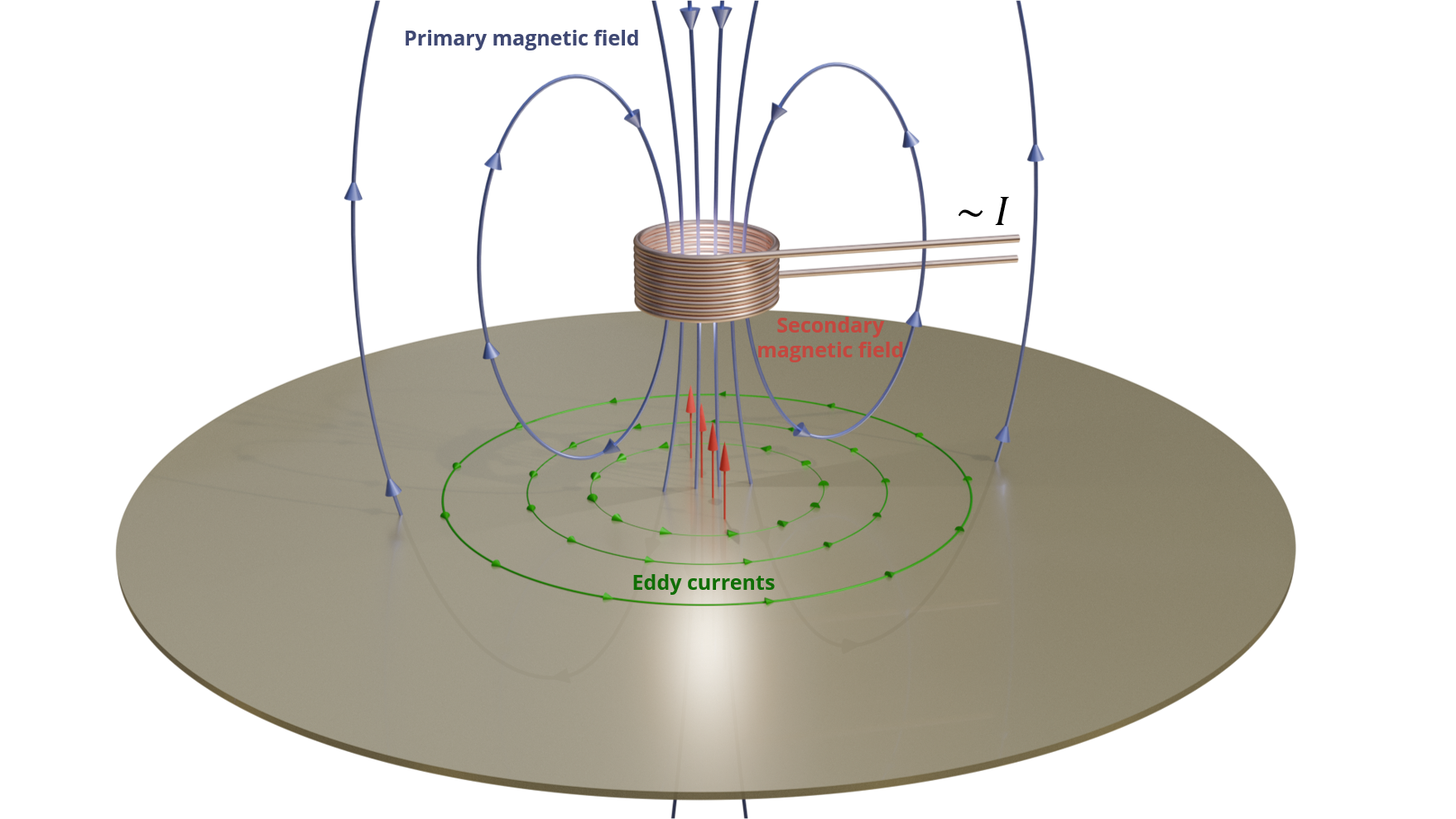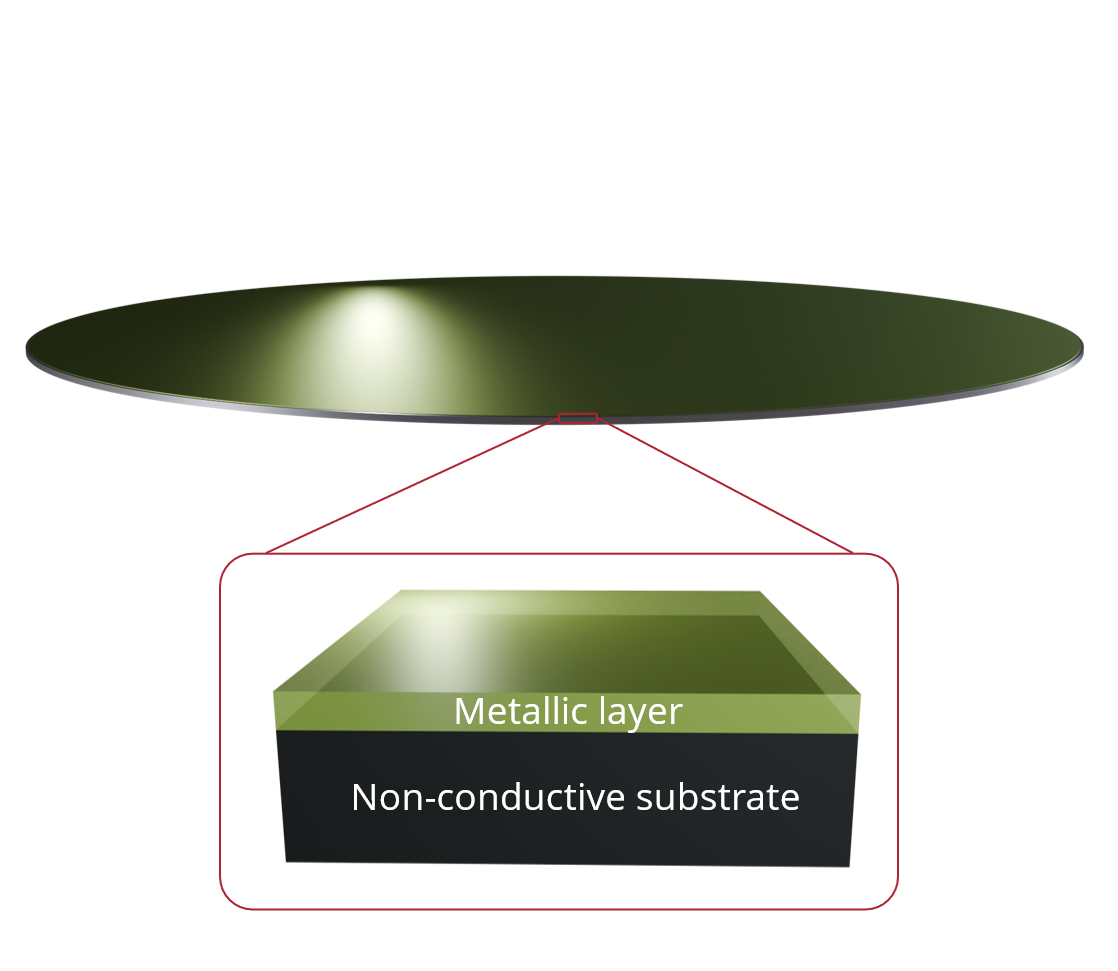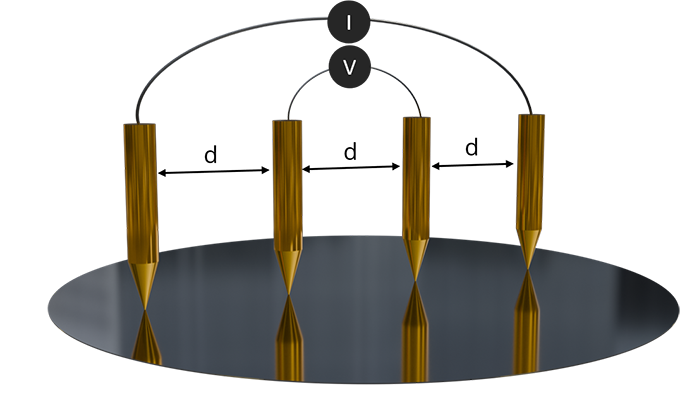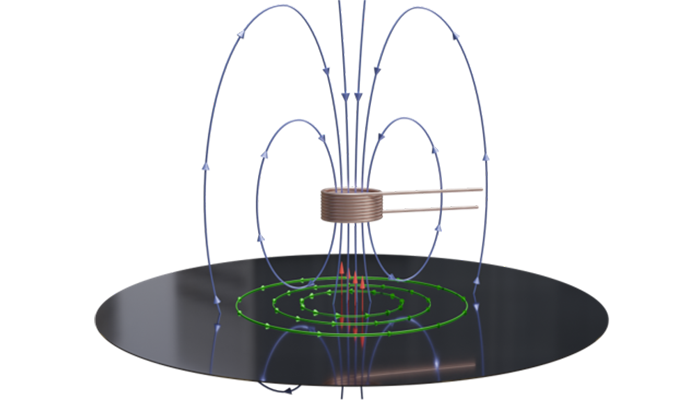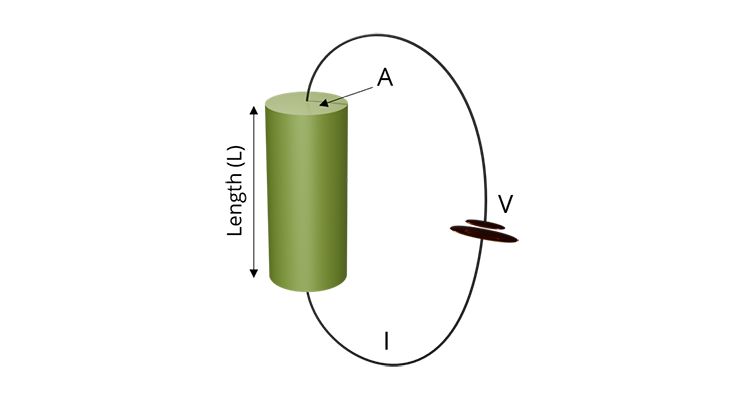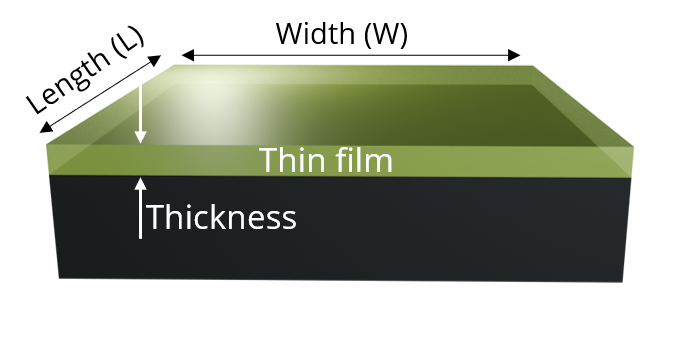MRes 2000 Contactless Resistivity Measurement System [300 mm]
Our cutting-edge non contact resistivity measurement system
EXCELLENCE
Renowned globally
MRes 2000 Contactless Resistivity Measurement System 300 mm
MRes 2000 Contactless Resistivity Measurement System [300 mm]
Introducing the MRes 2000 our cutting-edge non-contact resistivity measurement system, renowned globally for its excellence in both industry and research.
With over two decades of expertise in eddy-current based resistivity measurements, the MRes 2000 sets the industry standard, providing unparalleled accuracy and reliability.
Outstanding versatility
Designed to accommodate wafer diameters ranging from 50 mm to 300 mm and a thickness spanning 150 µm up to 1,200 µm, the MRes 2000 stands out for its versatility. This makes it an ideal solution for a variety of applications, especially in the realm of semiconductors.
Measuring Data
Our MRes 2000 boasts a standard resistance range of 0.005 Ω/sq up to 100 kΩ/sq*, ensuring precise measurements for bulk samples and conductive layers on one side of the wafer.
No Recalibration Needed for any Thickness
What sets it apart is its ability to maintain accuracy without the need for recalibration across the entire dynamic range, both in terms of thickness and resistivity.
Achieving a standard deviation (1𝜎) of less than one percent, we guarantee consistency in every measurement. Whether it’s a single-point measurement, a line scan across the wafer diameter, or a comprehensive two-dimensional mapping, our high performance automatic positioning system ensures accuracy.
Users can easily create customized mapping patterns, and wafer edge detection guarantees precise positioning for user defined mapping points.
Tailoring measurement results to perfection is made possible through custom-made recipes, covering a spectrum of basic sample properties such as substrate properties and potential film resistivity, especially crucial for semiconductor applications. The MRes 2000 offers unparalleled flexibility and dynamics, allowing precise measurement of resistance, resistivity, and thickness across the complete dynamic range without the need for time-consuming recalibration.
No Wafer-Edge Exclusion
The video demonstrates the simulated eddy-current power distribution within a silicon wafer, induced by a 14 mm MRes 2000 inductive sensor.
As the inductive MRes 2000 sensor approaches the edge of the silicon wafer (“sensor center offset to wafer edge”), you can observe a significant increase in the induced eddy-current power density near the wafer edge. Since there is no conductive material beyond the wafer edge, the eddy-currents are forced to flow within an increasingly confined area.
This confinement results in the observed phenomenon of increased eddy-current power density. Taking this phenomenon into account highlights the exceptional capabilities of our advanced measurement technique.
Unlike traditional methods that exclude edge measurements, our technology has no edge exclusion, providing comprehensive data across the entire surface area. This technique enables us to measure resistance based on the eddy-current power losses within the sample right up to the very edge.
The demonstrated simulation is backed by actual measurements. We measured the resistance of several standard silicon wafers at the very center before half-cutting each wafer. After cutting, we measured the resistance again at the same area, now including the cut edges. The comparison of the measurement results before and after cutting
the wafers showed outstanding accordane.
Whether you’re operating in an industrial setting or a cleanroom environment, our MRes 2000 integrates seamlessly into diverse workspaces.
Don’t require such a broad spectrum of features? Explore our other products. For any questions or specific requirements, feel free to reach out. At SWS-Tec, we are committed to advancing your measurement needs with cutting-edge technology.
* Resistance range for a single MRes covers 6 decades, i.e. for example 0.005 Ω/sq to 500 Ω/sq. Please get in touch with us for your specific needs.
MRes 2000 Contactless Resistivity Measurement System
MRes 2000 fully automatic measured mapping results, exemplarily shown for a Ø 300 mm Silicon wafer.
We utilized 49 distinct measurement points across the wafer for Thickness and Resistance, enabling the calculation of 3-dimensional interpolated data.
Curious for more details about our software? Check out our MRes2000 Software section for more information.
Statistics
Interpolated Cross Section Trajectory @23° concerning
y-axis (right chart)
Statistics
Interpolated Cross Section Trajectory @23° concerning
y-axis (right chart)
We are here to help!
Information you provide in the form is used and stored to process your enquiry and, if you have allowed the cookies, to improve content personalisation.
SWS-Tec processes personal information responsibly. For more information, please review our Privacy Policy (General Data Protection Regulation/GDPR).
* Mandatory field
Office
D-85643 Steinhoering, Germany
Hours
M-F: 9am – 5pm
S-S: Closed
Call Us
Why Do We Need Non-Contact Eddy-Current-Based Resistance Measurement?
Traditional resistance measurement methods may involve direct contact, which can alter the properties of the material or even damage delicate samples. Non-contact methods, particularly those based on eddy currents, offer a solution by allowing measurements without physical contact, preserving the integrity of the sample. Eddy current based resistance measurement relies on the principles of electromagnetic induction and the interaction of eddy currents with the material under test.
Principle of Eddy-Currents
Electromagnetic Induction:
When an alternating current (~ 𝐼) flows through a coil, it generates a time-varying magnetic field around it (primary magnetic field). According to Faraday’s Law of Induction, a changing magnetic field induces an electric current (eddy currents) in a nearby conductive material.
Opposition to Primary Magnetic Field:
The eddy currents create their own magnetic field (secondary magnetic field), which opposes the original magnetic field from the coil (Lenz’s Law). This opposition affects the impedance (Z) of the coil.
For a more detailed explanation of why and how eddy currents can be used to measure the resistance of a material please check out our technology page.
Eddy-Current Based Layer Thickness Measurement for Precision and Reliability
Our advanced layer thickness measurement technology utilizes an eddy-current-based, non-contact approach to provide highly accurate, non-destructive measurements. Designed for delicate and conductive layers, our layer thickness measurement system ensures precise readings without compromising material integrity. This innovative eddy-current-based layer thickness measurement solution is ideal for applications requiring fast, reliable results in quality control and manufacturing. Experience the advantages of non-contact layer thickness measurement for enhanced precision and efficiency across a variety of materials and layers.
Key Applications:
- Thin-Film Technologies: Ideal for assessing thin-film materials after deposition processes like PVD, CVD, MBE and ALD.
- Semiconductor Applications: Suitable for a wide range of semiconductor materials, like Si, GaN and SiC, supporting both research and production needs.
- Solar and Photovoltaic Applications: Designed to measure and optimize materials used in solar cells and other photovoltaic technologies.
- Innovative Glass Technologies: Applicable to architectural glass such as Low-E (low emissivity) glass and smart glass technologies.
- Lighting and Display Technologies: Supports OLED and LED material testing and development.
A Superior Alternative to the 4-Point Probe Technique
Non-Contact, Non-Destructive Eddy-Current Based Measurement
Our eddy-current-based measurement technology offers a powerful, non-contact, and non-destructive solution for both layer thickness and sheet resistance measurements. Unlike the traditional 4-point probe technique, which requires physical contact and may risk damage to delicate surfaces, our non-contact eddy-current approach preserves material integrity by eliminating any physical contact during the measurement process. This non-destructive method not only ensures the longevity of sensitive materials but also provides faster, repeatable results across various applications.
Non-Contact Non-Destructive
For both layer thickness measurement and sheet resistance or resistivity analysis, the eddy-current based technique delivers unmatched precision, efficiency, and durability compared to the 4-point probe. By avoiding surface damage and offering consistent, high-accuracy results, our non-contact, non-destructive measurement technology is the ideal choice for quality control and production environments where both accuracy and material preservation are paramount.
SWS-Tec’s Advanced Eddy-Current Technology for Sheet Resistance Measurement
Sheet Resistance Thin Film – Our eddy-current-based sheet resistance measurement technology provides a highly accurate, non-contact sheet resistance solution. Unlike traditional methods, our non-contact sheet resistance approach ensures precise measurements without damaging materials. Designed for advanced applications, our eddy current-based sheet resistance measurement system can reliably measure sheet resistance across a range of conductive materials, delivering consistent, non-destructive results. Whether you’re looking to enhance quality control or boost production efficiency, our sheet resistance technology meets the highest standards for accuracy and reliability.
For a more detailed explanation about sheet resistance please check out our technology page.
Precision Sheet Resistance Measurement on Thin Films
Sheet Resistance Thin Film – Our advanced sheet resistance measurement technology is specially optimized for thin films, offering accurate, non-contact measurements that preserve the integrity of delicate layers. Utilizing an eddy-current-based approach, our system provides fast, reliable sheet resistance measurement on thin films without the need for physical contact, making it a non-destructive solution ideal for sensitive materials.
Whether used for quality control in semiconductor manufacturing or material analysis in research, our thin-film sheet resistance measurement system ensures precise, repeatable results across a range of conductive and semi-conductive materials. Experience the efficiency and accuracy of our technology for high-performance thin-film applications, where precision and material preservation are essential.
![SWS-Tec – MRes 2000 [300 mm] MRes 2000 Contactless Resistivity Measurement System 300 mm](https://sws-tec.com/wp-content/uploads/2024/06/SWS-Tec-MRes-2000-300-mm-bw.jpg)
![MRes 2000 [200 mm]: Thickness](https://sws-tec.com/wp-content/uploads/2024/04/SWS-Tec-MRes-2000-300-mm-01-1x3d_Thickness.png)
![SWS-Tec – MRes 2000 [200 mm]: Resistance N-Type](https://sws-tec.com/wp-content/uploads/2024/04/SWS-Tec-MRes-2000-300-mm-02-Resistance-N-Type.png)
![SWS-Tec – MRes 2000 [300 mm]: Spec. Resistivity N-Type](https://sws-tec.com/wp-content/uploads/2024/04/SWS-Tec-MRes-2000-300-mm-03-Spec-Resistivity-N-Type.png)
